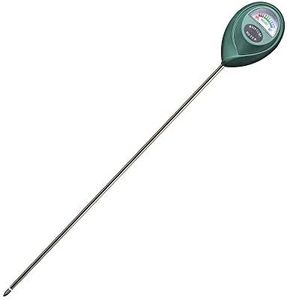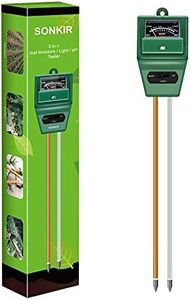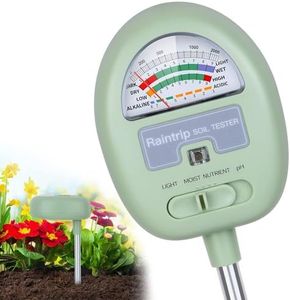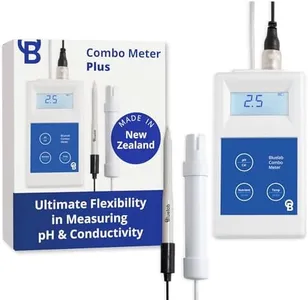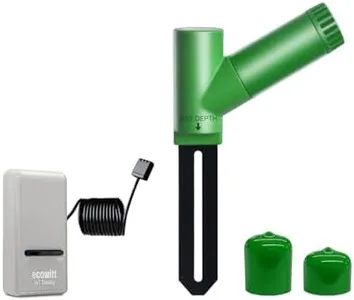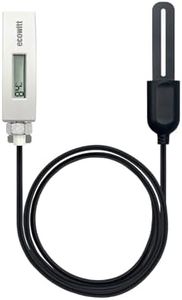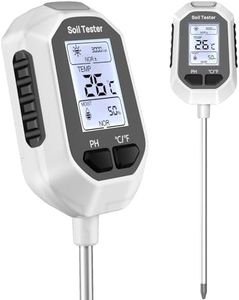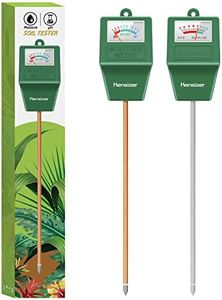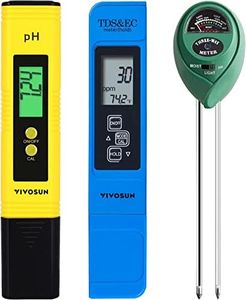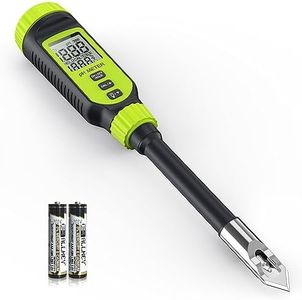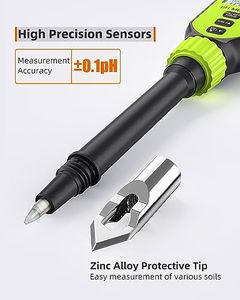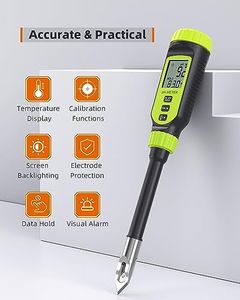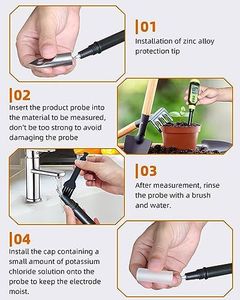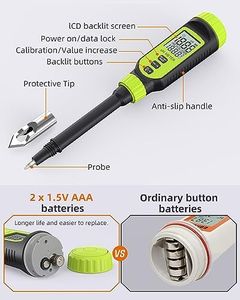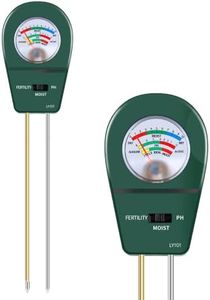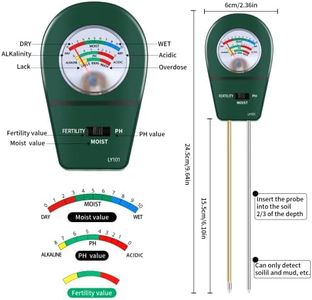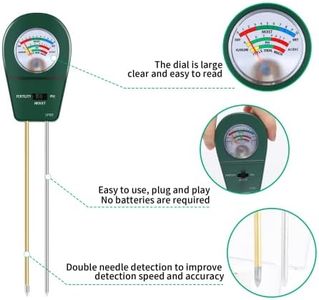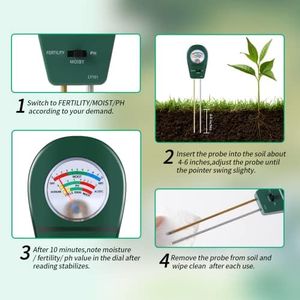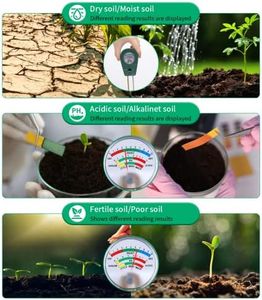10 Best Soil Ph Moisture Testers 2025 in the United States
Winner
XLUX Long Probe Deep Use Soil Moisture Meter, Water Monitor Indicator Sensor, Hygrometer for Outdoor Indoor Large Pot Plants, Flower, Gardening, Farming
The XLUX Long Probe Deep Use Soil Moisture Meter is a reliable tool for both indoor and outdoor gardening. Designed specifically to measure soil moisture, it features a long probe that reaches deeper into larger pots or garden beds, making it effective for monitoring the moisture at root level. This meter shows immediate moisture levels, which helps in making quick decisions on watering plants. The large, easy-to-read dial with ten scales further aids in this process, making it user-friendly even for those not familiar with gardening tools.
Most important from
9866 reviews
SONKIR Soil pH Meter, MS02 3-in-1 Soil Moisture/Light/pH Tester Gardening Tool Kits for Plant Care, Great for Garden, Lawn, Farm, Indoor & Outdoor Use (Green)
The SONKIR Soil pH Meter, model MS02, is a versatile 3-in-1 tool designed primarily for measuring soil moisture, pH, and light levels. This makes it highly useful for gardening, whether you're working in a garden, lawn, farm, or even indoors. One of its key strengths is the convenience it offers by not requiring any batteries. You simply insert it into the soil and read the results after a few minutes. This makes the device very easy to use, even for beginners.
Most important from
43747 reviews
Top 10 Best Soil Ph Moisture Testers 2025 in the United States
Winner
9.8 score
XLUX Long Probe Deep Use Soil Moisture Meter, Water Monitor Indicator Sensor, Hygrometer for Outdoor Indoor Large Pot Plants, Flower, Gardening, Farming
XLUX Long Probe Deep Use Soil Moisture Meter, Water Monitor Indicator Sensor, Hygrometer for Outdoor Indoor Large Pot Plants, Flower, Gardening, Farming
Chosen by 1375 this week
SONKIR Soil pH Meter, MS02 3-in-1 Soil Moisture/Light/pH Tester Gardening Tool Kits for Plant Care, Great for Garden, Lawn, Farm, Indoor & Outdoor Use (Green)
SONKIR Soil pH Meter, MS02 3-in-1 Soil Moisture/Light/pH Tester Gardening Tool Kits for Plant Care, Great for Garden, Lawn, Farm, Indoor & Outdoor Use (Green)
Bluelab METCOMPLUS Combo Meter Plus for pH, Temperature, and Conductivity in Water and Soil with Easy Calibration, Digital Nutrient (TDS/PPM) Testing Kit for Hydroponic System & Growing Indoor Plants
Bluelab METCOMPLUS Combo Meter Plus for pH, Temperature, and Conductivity in Water and Soil with Easy Calibration, Digital Nutrient (TDS/PPM) Testing Kit for Hydroponic System & Growing Indoor Plants
Our technology thoroughly searches through the online shopping world, reviewing hundreds of sites. We then process and analyze this information, updating in real-time to bring you the latest top-rated products. This way, you always get the best and most current options available.

